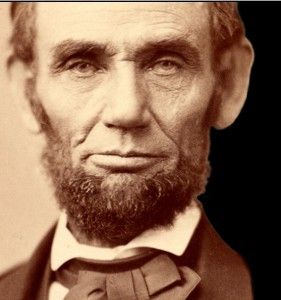 U.S. President Abraham Lincoln‘s Preliminary Emancipation Proclamation, announced one week ago today, leads to numerous positive affirmations from Baptists of the North. This week’s resolution from the Seneca Baptist Association of New York rejoices that the U.S. is now positioning itself squarely against African slavery, declaring God’s hand upon the nation for its commitment to freedom and equality for all people.
U.S. President Abraham Lincoln‘s Preliminary Emancipation Proclamation, announced one week ago today, leads to numerous positive affirmations from Baptists of the North. This week’s resolution from the Seneca Baptist Association of New York rejoices that the U.S. is now positioning itself squarely against African slavery, declaring God’s hand upon the nation for its commitment to freedom and equality for all people.
That, while we deplore the evils of the war, we still believe that the interests of humanity, freedom, and religion require its prosecution until the rebellion is utterly crushed out.
That, as slavery has taken the sword, we should therefore let it perish by the sword, being absolved from whatever legal or moral obligations we may have been under to support it.
That we recognize in the scenes of blood now being enacted, the righteous judgments of God for our sins. It therefore becomes us to bow in humility and penitence, lest iniquity be our ruin.
That the recent proclamation of the President is but a step in the order of Providence, necessitated by the logic of events. We therefore accept it, praying that the same Providence will make it a sure proclamation for liberty.
That we cherish in our memories and prayers our brethren and friends upon the field, making incessant effort to promote their spiritual welfare, and trusting in God for their protection.
Meanwhile, today U.S. Secretary of State William Seward pens a response to a recent letter from the West New Jersey Baptist Association.
Department Of State, September 29, 1862.
To The West New Jersey Baptist Association.
Reverend Gentlemen :—The resolutions concerning the state of public affairs which you have transmitted to me have been communicated to the President of the United States. I am instructed by him to reply that he accepts with the most sincere and grateful emotions the pledges they offer of all the magnanimous endeavors and all the vigorous efforts which the emergencies of the country demand. The President desires, also, that you may be well assured that, so far as it belongs to him, no vigor and no perseverance shall be wanting to suppress the existing insurrection and to preserve and maintain the union of the States and the integrity of the country. You may further rest assured that the President is looking for a restoration of peace on no other basis than that of the unconditional acquiescence by the people of all the States in the constitutional authority of the Federal Government.
Whatever policy shall lead to that result will be pursued; whatever interest shall stand in the way of it will be disregarded.
The President is, moreover, especially sensible of the wisdom of your counsels in recommending the cultivation by the Government and people of the United States of a spirit of meekness, humiliation, and dependence on Almighty God, as an indispensable condition for obtaining that Divine aid and favor without which all human power, though directed to the wisest and most benevolent ends, is unavailing and worthless. In a time of public danger like this, a State, especially a republic, as you justly imply, ought to repress and expel all personal ambitions, jealousies, and asperities, and become one united, harmonious, loyal, and devotional people. Your obedient servant,
William II. Seward.
Northern Baptists, in short, reflect a Christian patriotism that locates its highest principle in freedom and equality for all of God’s human creatures. Although the realities of this principle often fall short of the vision (women, for example, are often treated differently than men in church, while in public life they lack the right to vote), Baptists of the North, for the moment, take a leading role in framing America as a nation chosen by God to advance certain lofty principles that apply to all persons. Having until Lincoln’s recent announcement often been critical of U.S. policies toward the slavery-centric Confederacy, their criticisms have now been replaced with joy and expectation of a future hope of liberty for all.
Source: B. F. Morris, Christian Life and Character of the Civil Institutions of the United States, Developed in the Official and Historical Annals of the Republic, Philadelphia, George W. Childs, 1864, pp. 745-747 (link)


